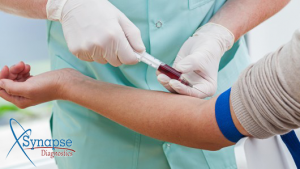Diagnostic testing contains tests and procedures to verify the occurrence of disease & recognize the exact tumor type. These examinations can either be led by your by oncologists.
Diagnostic testing implements are continually being advanced. We use refined diagnostic technology to identify tumor type. There is a wide range of methods to analyze cancer.
The main common diagnostic procedures:
- A evaluation of health history
- Physical analysis
- Biopsy (A biopsy is when a small sample of tissue is removed from a part of the body. The sample of tissue is then observed under the microscope to look for irregular cells.)
- Imaging tests (severaldiagnostic imaging methods to create internal portraits of the body and its erections. These images are generally analyzed by a radiologist, a physician who concentrates in understanding diagnostic images. The images and the radiologist’s judgments are then sent to the doctors to use the information)
- Imaging tests are –X-ray, PET/CT, MRI, ultrasound, etc.
- Nuclear medicine scans
- Endoscopy (A flexible plastic tube with a tiny camera on the end is inserted into body cavities and organs, allowing the physician to view the suspicious area. There are many types of scopes, each planned to view exact areas of the body. For instance, a colonoscopy is used to detect developments inside the colon, and a laparoscope is used to observe the abdominal cavity.)
- Genetic tests
- Laboratory tests (some tumors are release ingredients called tumor markers, which can be noticed in the blood. A blood test for prostate cancer regulates the amount of prostate specific antigen (PSA).
Methods should be used to confirm the diagnosis.
Before treatment
We will exactly find tumors, stage the infection, and decide suitable arrangements of cancer treatments for you. Tumor molecular reporting helps us to classify the right chemotherapy, which moderates avoidable toxicity and identifies proper treatment methodology from the beginning.
During treatment
- track the size of the tumor
- development of the disease
- your reaction to the treatment
- Change your treatment consequently.
After treatment
We will monitor you to estimate any symptoms you might have, and list regular check-ups to monitor for any symbols of metastasis.
For more details please Contact through phone number: +91 9948175768


